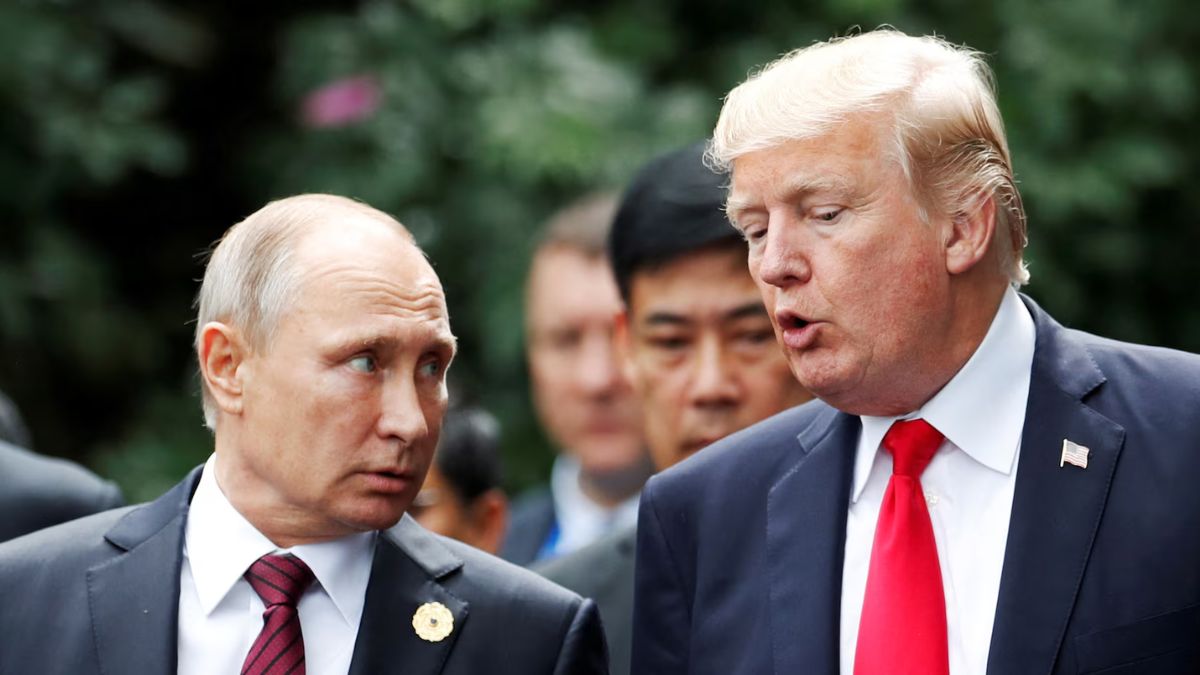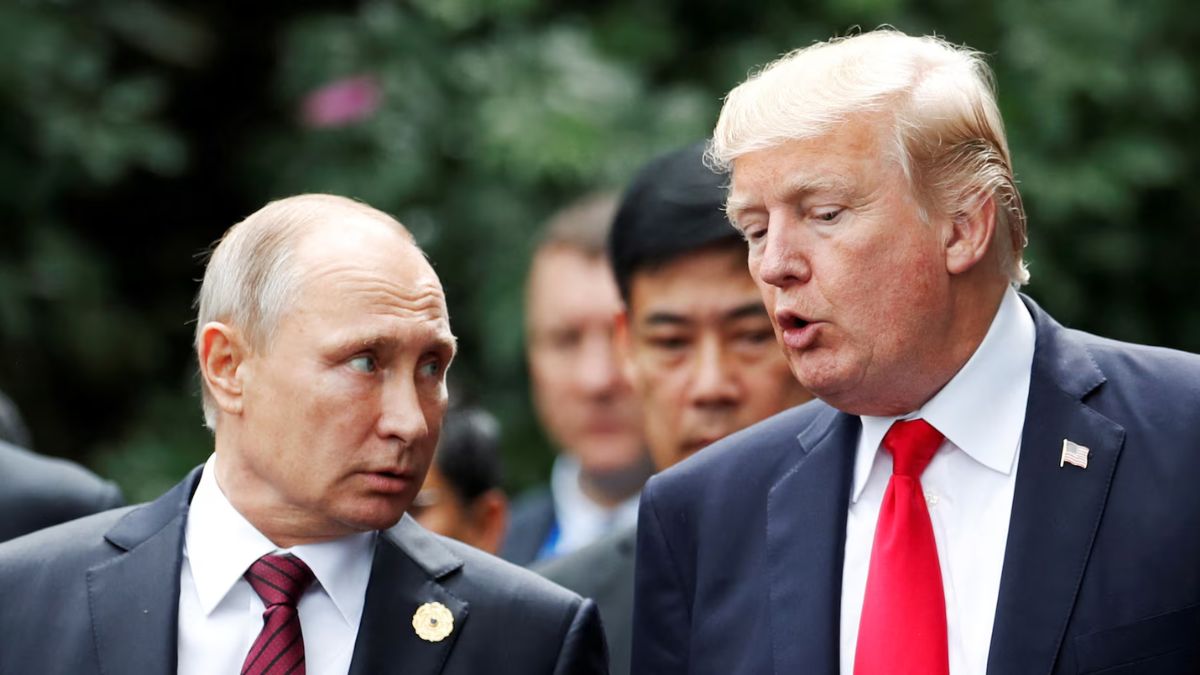Georgian lawmakers have agreed to an early draft of a controversial “foreign influence” bill.
The bill has sparked outrage in the country and concern in the West, with many arguing it undermines Georgia’s bid for EU membership.
Protesters, who gathered outside parliament, are denouncing the bill by saying it mirrors a repressive Russian law.
Here’s all we know about it.
What is the ‘foreign agents’ bill?
The ‘foreign agents’ bill was reintroduced for debate by the ruling Georgian Dream party on Tuesday.
If adopted, the bill will require any independent NGO and media organisation that receives more than 20 per cent of funding from abroad to register as an “organisation pursuing the interests of a foreign power,” as per AFP.
This differs from a proposal introduced last year that used the term “agent of foreign influence.”
The ruling party was forced to drop a similar measure last year, following mass protests in which police used water cannon and teargas against demonstrators.
Then, in a surprise move before October’s Parliamentary elections, which are seen as a key democratic test, it re-introduced the bill in parliament this month.
Georgian Dream has justified the bill by saying it is necessary to combat what it calls “pseudo-liberal values” imposed by foreigners and promote transparency, as per Reuters.
Impact Shorts
View AllLawmakers voted 78 to 25 to move the draft bill along for further debate. The party at the Centre controls 84 seats in the 150-member legislature and can pass the law without opposition backing, as per media reports.
Georgian president, Salome Zurabishbili, who is at loggerheads with the ruling party and vowed to repeal the law if it crosses her desk, condemned the move as “against the will of the population.”
It is “a direct provocation — a Russian strategy of destabilisation,” she said.
“The insistence of the authorities to push through this law against the will of the population and despite partners protest is a direct provocation – a Russian strategy of destabilisation,” she said on social media.
What does it have to do with Russia and the US?
The term “foreign agent” is rooted in the Soviet past and suggests such people are traitors and enemies of the state, as per AFP.
A similar law is used in Russia to punish government critics and suffocate independent media. Russia is also widely unpopular in Georgia because it supports the breakaway Georgian regions of Abkhazia and South Ossetia. The Vladimir Putin-led country also defeated Georgia in a short war in 2008.
In December, the EU granted Georgia official candidate status but said Tbilisi would have to reform its judicial and electoral systems, reduce political polarisation, improve press freedom, and curtail the power of oligarchs before membership talks are formally launched.
A former Soviet republic, Georgia has sought for years to deepen relations with the West and join NATO, however, in recent years, the country has also been criticised for perceived democratic backsliding. The current ruling party is accused of trying to steer the Black Sea nation towards closer ties with Russia.
According to Reuters, reacting to the draft law on “foreign agents,” the Kremlin said on Wednesday the bill is being used by outside actors to stoke anti-Russian sentiment and should not be called Russian. Kremlin spokesperson Dmitry Peskov told reporters, the situation was being used to “provoke anti-Russian sentiments” and that “it is unlikely that these impulses are being fed from within Georgia. They’re probably coming from the outside.”
Peskov said it was the United States, not Russia, that had pioneered such legislation, referring to the Foreign Agents Registration Act (FARA) of 1938. “Now this is a normal practice of a large number of governments that are doing everything to protect themselves from outside influence,” he said.
It is pertinent to mention here that the first foreign agent law, FARA, was enacted in the US in 1938 to counter Nazi propaganda. The US Department of Justice describes FARA as “which requires certain agents of foreign principals, engaged in political activities or other activities specified under the statute, to make public disclosure of their relationship with the foreign principal, as well as activities, receipts, and disbursements in support of those activities."
The law is still in force today but has undergone significant changes. According to a 2023 report by The Conversation, its stated purpose is to identify foreign influence in America and combat threats to national security and the concept of propaganda has been removed.
Georgia and Russia both used FARA as a model when creating their own foreign agency laws.
The Russian and the abandoned Georgian versions of these laws, however, differ significantly from FARA in that “foreign agents” are not required to operate on behalf of a foreign government, political party, business, or individual, the report explained.
Therefore, from a legal perspective, the terms “foreign agent” and “agent of foreign influence” are inappropriate because agency activity does not even need to be proven. However, people who are classified as “foreign agents” face very significant legal repercussions.
Why are people protesting?
Thousands of people rallied on Tuesday evening outside the parliament building in Tbilisi, blocking traffic on the main thoroughfare of the Georgian capital, whistling and shouting, “No to the Russian law!”
According to the AFP, riot police cordoned off entrances to the legislature and demonstrators briefly scuffled with them, attempting to push against the police line.
Police used pepper spray against the crowds and several protesters were detained. The water cannon was on standby.
The interior ministry said one police officer had been injured and called on protesters to follow police instructions.
“In case the rally participants continue their illegal actions, the Ministry of Internal Affairs will take special measures defined by law,” it said in a statement.
University student Kote Tatishvili, one of the demonstrators, said, “Georgians will never accept this Russian law.”
“We, peaceful demonstrators, will prevail, we will force Russian stooges in the Georgian Dream [ruling party] to withdraw the law,” he said.
A day earlier, police had detained 14 demonstrators as about 10,000 people took to the streets.
How are other countries reacting?
The EU has called on Tbilisi not to pass the bill. It said that the bill contradicted the democratic reforms the country was required to pursue to progress on its path towards membership of the bloc.
Renewing Brussels’ criticism of the proposals, the president of the European Council, Charles Michel, said on Tuesday, “The draft law on transparency of foreign influence is not consistent with Georgia’s EU aspiration and its accession trajectory.”
It “will bring Georgia further away from the EU and not closer,” he wrote on X.
Amnesty International also denounced the bill by saying, “The bill poses a direct threat to the rights to freedom of association and expression." It further urged Georgian authorities to “immediately stop their incessant efforts to impose repressive legislation on the country’s vibrant civil society."
US state department spokesperson Matthew Miller said last week that passing the law would “derail Georgia from its European path.”
With inputs from agencies


)
)
)
)
)
)
)
)
)



